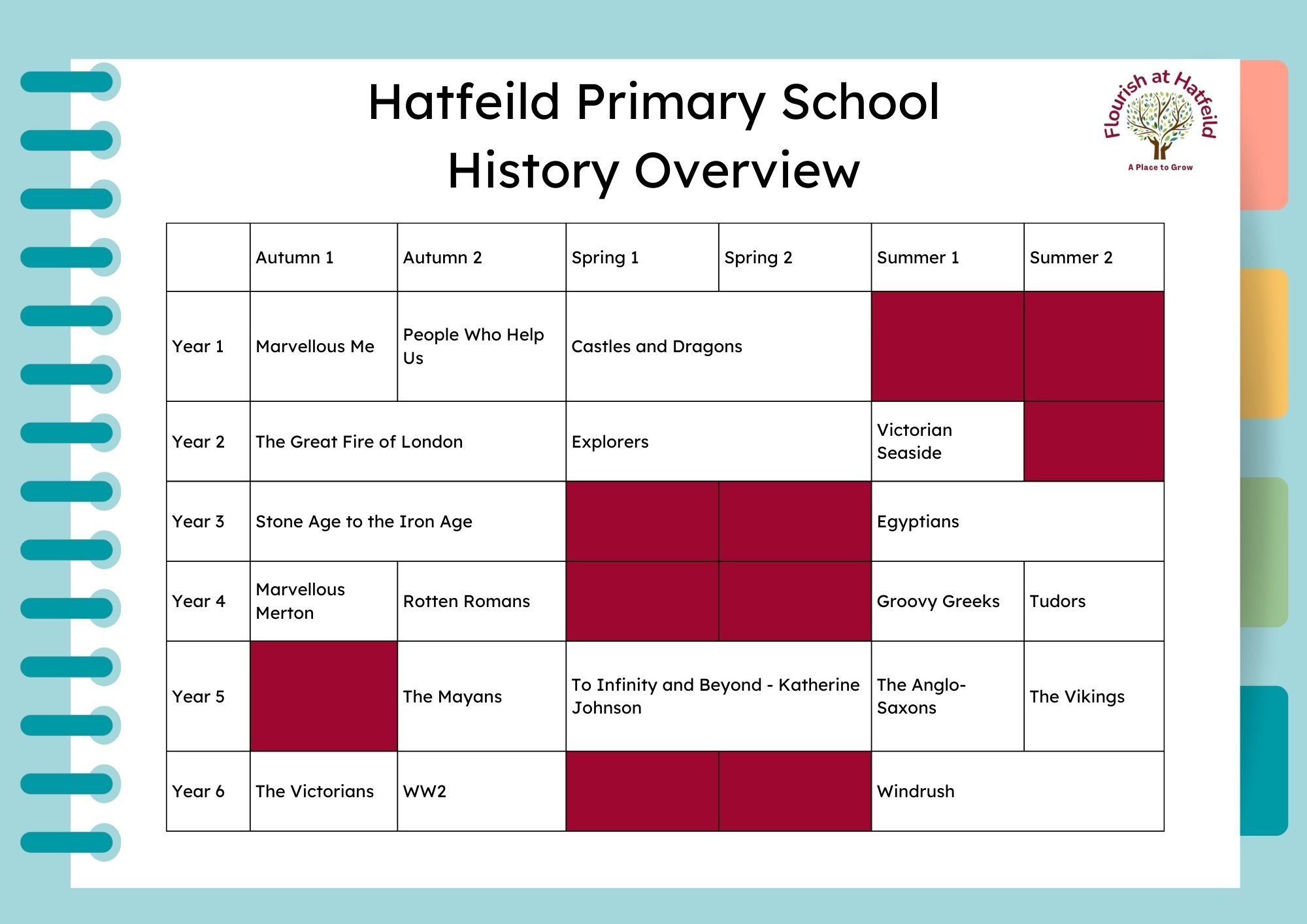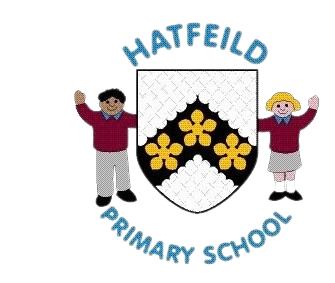History
Intent
History aims to be fully inclusive for every child at Hatfeild Primary School. We strive to provide a balanced, differentiated and broad curriculum, fulfilling the requirements of the National Curriculum for history, and thus ensuring children develop a love of history whilst developing the progressive development of historical concepts, knowledge and skills. We also aim to inspire pupils with a curiosity and fascination with history that will last beyond their time in primary school.
We plan for our pupils to develop their sense of identity by better understanding their context, and for them to know a chronological framework of significant events and people. We aim to foster a curiosity about the past, and have pupils engaged, motivated and curious to learn, thus enabling them to make meaningful links to the present day. Pupils will evaluate a range of primary and secondary sources to understand how these give us an insight into the lives of people in the past, the world they lived in, and how interpretations of history may differ.
A high-quality history education will help pupils gain a coherent knowledge and understanding of Britain’s past and that of the wider world (The 2014 Primary National Curriculum in England). To enable our pupils to develop secure knowledge, our History curriculum is organised into a progression model; skills, knowledge and vocabulary are taught sequentially. We make meaningful links with other subjects wherever possible to strengthen connections and understanding. We make use of trips, visitors, and workshops to bring our learning alive and make it memorable. We also aim to develop a richer understanding of history that is relevant to our pupils’ own experiences by exploring and making connections to our local area.
Implementation
To ensure progression throughout each year group across the school, teachers have identified the key knowledge and skills of each topic. By the end of year 6, pupils will have a chronological understanding of British history from the Stone Age to the present day. Pupils will be able to draw comparisons and make connections between different time periods and their own lives. Teachers have planned for cross-curricular outcomes, making strong links with literacy lessons to enable further contextual learning. Planning is informed by and aligned with the national curriculum, and in line with the school’s commitment to inclusion, consideration is given to how to incorporate greater depth and how pupils are supported where necessary. Teachers will monitor pupil outcomes to ensure they reflect a sound understanding of the key identified knowledge.
Teachers enable pupils to make connections, revise and recap previous historical knowledge. We use primary and secondary pictures, photographs and film clips, teach key vocabulary and use historical evidence as a starting point in lessons. Pupils are encouraged to discuss, reason with curiosity and interpret what they are presented with. They are encouraged to react to historical evidence and use their knowledge to discuss, present, debate, re-enact and write from different historical perspectives. Pupils’ understanding of history and its impact on society is further consolidated in this way. Learning walls/displays in classrooms provide constant scaffolding for children and vocabulary is progressively taught across the school.
The Early Years Foundation Stage (EYFS) follows the ‘Development Matters in the EYFS’ guidance, which aims for all children in Foundation Stage to have an ‘Understanding of the World; people and communities, the world and technology’ by the end of the academic year.
Learning starts by revisiting prior knowledge and is scaffolded to support children to recall their previous learning, thus making connections. In order to integrate new knowledge into larger concepts, staff will model explicitly the subject-specific vocabulary, knowledge and skills relevant to the learning.
Impact
The children’s acquisition of identified key knowledge, based on a broad and balanced history curriculum, will be evidenced in topic and literacy books. These will also show how history is taught at an age appropriate standard across each year group, and how appropriate opportunities are planned for working at greater depth. There is evidence that pupils are acquiring knowledge, skills and vocabulary in an appropriate sequence. Pupils are actively encouraged to identify their own target areas, and review the agreed successes at the end of every session, with support from their teachers.
By the time the pupils at Hatfeild Primary leave our school, they should have developed:
∙ A secure knowledge and understanding of people, events and contexts from the historical periods covered
∙ The ability to think critically about history and communicate confidently in styles appropriate to a range of audiences
∙ The ability consistently to support, evaluate and challenge their own and others’ views using detailed, appropriate and accurate historical evidence derived from a range of sources
∙ The ability to think, reflect, debate, discuss and evaluate the past, forming and refining questions and lines of enquiry
∙ A passion for history and an enthusiastic engagement in learning, which develops their sense of curiosity about the past and their understanding of how and why people interpret the past in different ways
∙ A respect for historical evidence and the ability to make critical use of it to support their explanations and judgements
∙ A desire to embrace challenging activities, including opportunities to undertake high-quality research across a range of historical topics.

